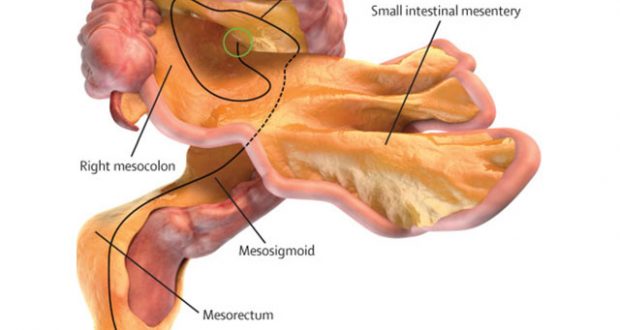The human organism has been found to have one new organ unknown until now. Its name is mesentery, and it has been previously famous as a couple of fragmented structures in the digestive tract. But in fact, this part is continuous, opposite of complex and fragmented and scientists have discovered that it is actually one organ.

Even though its task is still not clear, the discovery of this new organ shows a door to a completely new scientific area according to J. C. Coffey.
He claims that when it is approached as every other organ, there can be categorization of abdominal diseases in terms of the organ.
“Now we have established anatomy and the structure. The next step is the function. If you understand the function you can identify abnormal function, and then you have disease.“ When put all together, a whole new field of mesenteric science opens up.
This research has been published in a medical journal called The Lancet. Medical students are now told that the mesentery is a distinct organ.
The most famous medical textbook in the world – Gray’s Anatomy has been updated with this new fact.
Researchers and medical students can now research the role of the “new” organ, and how it can affect diseases of the abdomen, and there is hope that it could lead to new treatments.
The organ is actually a double fold of peritoneum, which is the lining of the cavity of the abdomen, and it is this that holds our intestines in place.
It is interesting that it was described by da Vinci in 1508, but it was ignored up until recent times.
Even though it has been considered that the human body has 5 organs, now there are actually 79 if counting the mesentery.
The vital ones are the heart, brain, kidneys, liver and the lungs, however there are 74 more that have a certain task in the overall organism function.
Furthermore, improved understanding and study of the mesentery can lead to discoveries of improved surgeries, less complications, quicker recovery, for example.












